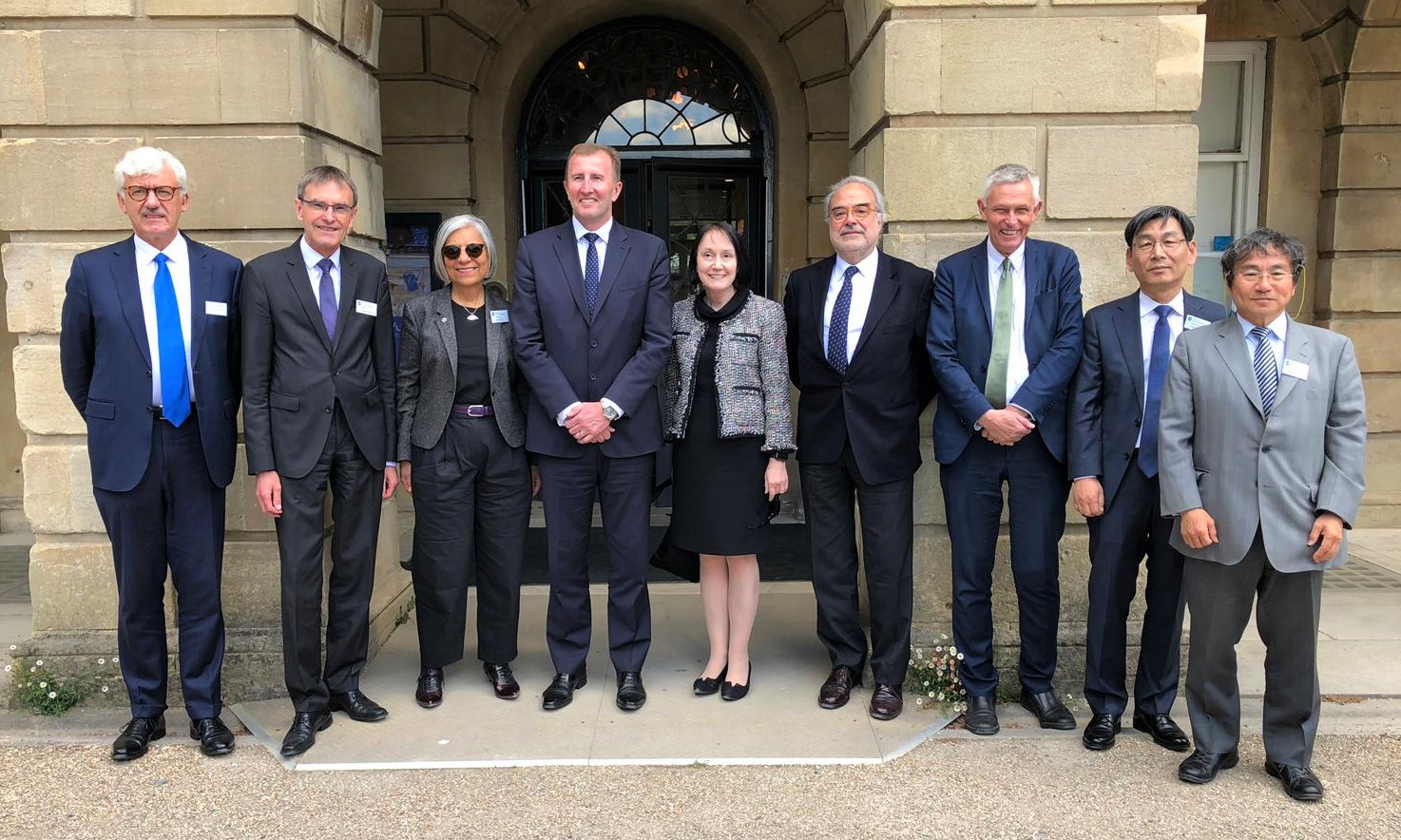Contenido principal
app noticias csn
 Asset Publisher
Asset Publisher
The chairman of the CSN highlights the commitment of the Board of Commisioners on the programme on knowledge management at the 44th meeting of INRA

A delegation from the Spanish Nuclear Safety Council (CSN, for its acronym in Spanish), headed by its chairman, Josep Maria Serena i Sender, has participated in the forty-fourth meeting of the International Nuclear Regulators Association (INRA) in Bath (United Kingdom). The two-day meeting allowed an in-depth exchange of information on the regulatory actions carried out by the regulatory bodies of Canada, France, Germany, Japan, South Korea, Sweden, United Kingdom, the United States of America and Spain.
Serena i Sender has shared with its counterparts the main projects of this last year in the Spanish regulatory body, among which he has made a review of the status of nuclear and radioactive facilities of the nuclear fuel cycle as well as the forecasts for the nuclear power plants closure set by the Government of Spain, which will be a new challenge for the Council.
He has also reported that Almaraz and Vandellós II nuclear power plants have already requested the renewal of the operation license to the Government and that CSN is already working on its evaluation.
The chairman of the Spanish regulator has highlighted the good results of the joint IRRS-Artemis mission of the IAEA that Spain received in 2018 and that the regulatory body has already initiated the National Action Plan designed to implement its findings.
After explaining the arrival of the new members of the Board of Commissioners to the Spanish regulator, he has summarized some of the activities and ongoing projects at CSN. Among them, he has brought out the approval of 25 new positions for technical staff at CSN, as well as the commitment of the new Board for the improvement of the knowledge management programme of the regulatory authority.
Finally, he commented on the approval of the new Regulation on Nuclear Safety that completes the transposition of Euratom Directive 2014/87/ on Nuclear Safety, in addition to explaining the beginning of the decommissioning process of Santa María de Garoña nuclear power plant, whose license renewal was denied by the Government on August 1, 2017.
Next INRA meeting will take place in Vienna, Austria, during the General Conference of the International Atomic Energy Agency in September.
The International Nuclear Regulators Association (INRA) is constituted by the most senior officials of the nine nuclear regulatory authorities in the world with most experience in the licensing of nuclear activities. It was established in Paris in May 1997.
INRA holds two meetings per year where regulatory issues of common interest are openly debated. In this international association, transparency, multilateral cooperation and the exchange of experiences among these countries are fostered.
